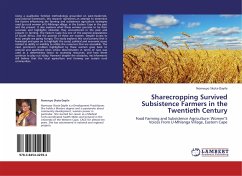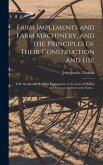This historical narrative traces selected aspects of twentieth century Greece that best lend context to the history of the American Farm School as it strove to improve the quality of education it offered to rural youth during this transforming period of modern Greek history. How the School progressed from its Protestant origins through the process of Hellenization is a major part of this story. The School's survival was as rocky as the Greek terrain itself. The series of wars are explained in light of the devastation they caused in Northern Greece and the influence they had on the School's students. Political events are analyzed closely to demonstrate not only their repercussions on students throughout Greece but also on those at the American Farm School. Emerging naturally from these events is a discussion of Greek American relations in the post war period, tracing areas of friction and harmony. Documenting the rural poverty that made Greek life miserable for the largest segment of Greece's population in the first half of the twentieth century, the book then moves systematically forward toward the post World War Two period, and era of relative prosperity. Greece's accession to the European Union, a move that forced the country and the Farm School to think globally altered the atmosphere. The School's purpose became larger than simply transforming hungry village boys into skilled tillers of the soil. Instead, the goal became the task of pinpointing Greece's shifting challenges and defining them, while constantly rethinking the School's mission to avoid propelling it along a meaningless track.
Hinweis: Dieser Artikel kann nur an eine deutsche Lieferadresse ausgeliefert werden.
Hinweis: Dieser Artikel kann nur an eine deutsche Lieferadresse ausgeliefert werden.








